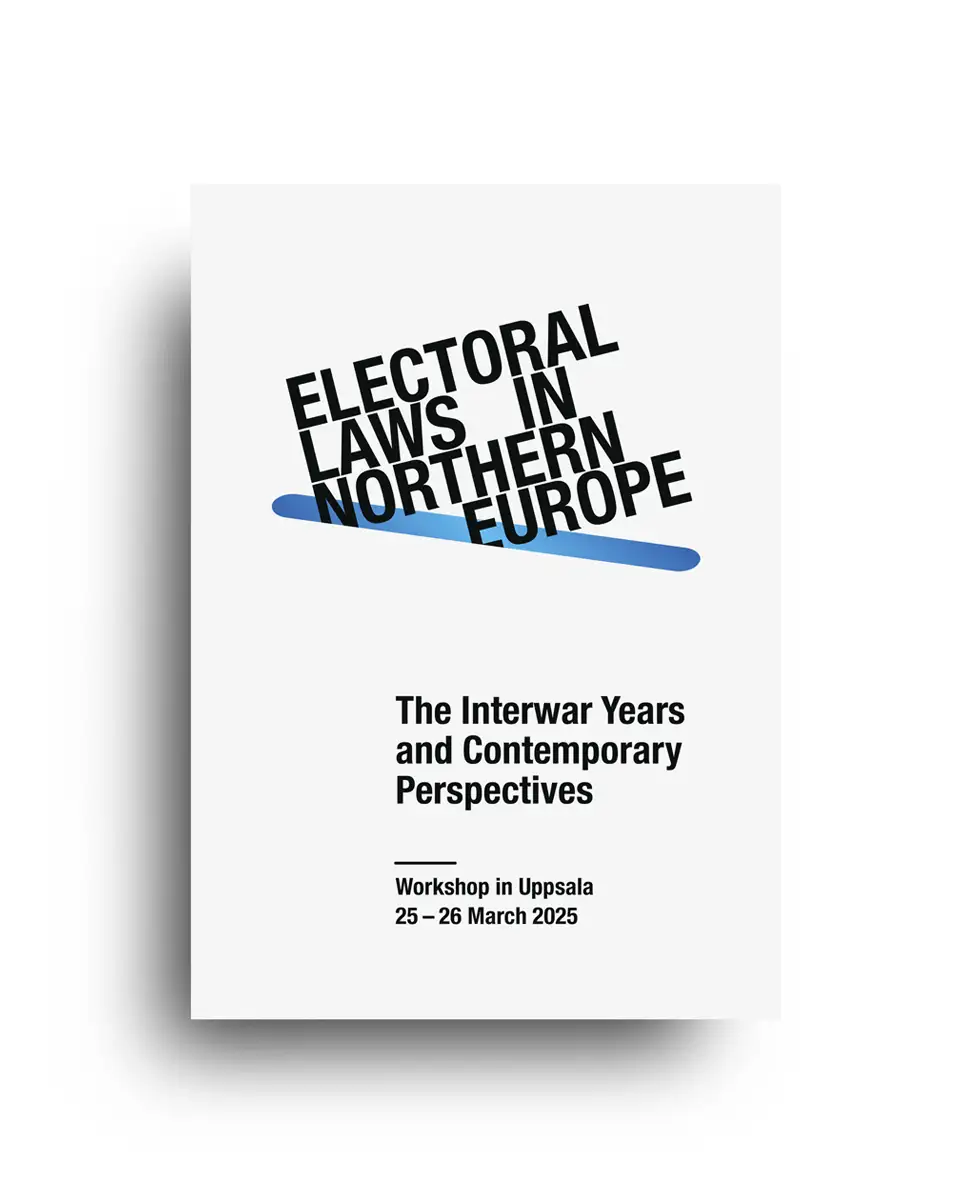Electoral laws in Northern Europe: The Interwar Years and Contemporary Perspectives
Workshop in Uppsala 25–26 March 2025
General and free elections are a defining factor for democracy. At the end of World War I, few countries had adopted laws that guaranteed free elections for all. However, democracy was on the rise and electoral laws were in the making, a development that took place hand in hand with the evolution of political parties thus affecting the prerequisites for forming cabinets. In this workshop we will examine, compare and analyze the electoral laws during the shaky interwar years in some of the Nordic countries, the Baltic states and Germany. Focus is on electoral laws from a “technical” perspective but also the consequences of those technicalities to the parliamentary situation as such. How were the laws constructed, what were the different or similar or co-dependent contexts, and what were the underlying justifications, compromises, political significance and heritage today? One interesting detail is, for example, that the 1922 Constitution of Latvia, inspired by the Weimar Constitution, was re-instated in 1993.
The interwar experiences make up an indispensable background for analyzing electoral issues and political processes of today. Meet prominent legal historians, constitutional lawyers, judges and political scientists from Germany, Latvia, Lithuania, Norway and Sweden in a discussion on the forms and significance of electoral laws during the interwar years, contemporary debates and future challenges.
• Dag Michalsen, Olof Palme guest professor 2025, appointed by the Swedish Research Council. The theme for the Olof Palme guest professor 2025 is Experiences of Crisis. Nordic Constitutional History, in Particular the Interwar time.
Program:
Tuesday March 25
Welcome: Anna Singer, Dean of the Faculty of Law & Marianne Dahlén, Associate Professor.
– Session 1: The interwar period
• Egils Levits, former President of Latvia: The Electoral System in Latvia 1918–1934 and its Implications for Representative Democracy. • Dag Michalsen, Professor, University of Oslo, holder of Olof Palme guest professorship: Electoral Laws in the Weimar Constitution: A Nordic Perspective. • Marie Meyrich, Doctor, University of Regensburg: Electoral Laws in Transition : Lessons from the Weimar Republic to the Grundgesetz. • Chair: Caroline Taube.
– Session 2 : Electoral Democracy in Practice and Theory
• Eirik Holmøyvik, Professor, University of Bergen: Electoral Reforms in Norway 1919–2023: From Fair to Free Elections. • Caroline Taube, Associate Professor, Uppsala University: Electoral Reforms in Sweden. • Marius Mikkel Kjølstad, Lecturer, University of Oslo: Hans Kelsen, Democracy and Models of Election • Chair: Dag Michalsen.
Wednesday March 26
– Session 3 : Contemporary Debates and Developments
• Li Bennich Björkman, Professor, Uppsala University: Choosing Electoral Rules in Estonia and Latvia: The Interwar Republics and the Democracies After 1991. • Egidijus Kuris, former Justice of the European Court of Human Rights and President of the Constitutional Court of Lithuania: On the Strasbourg Standards for National Elections. • Chair: Caroline Taube.
– Concluding discussion: Elections and Democracy – Duture Challenges
• Björn von Sydow, former Speaker of the Riksdag. • Egils Levits, Dag Michalsen, Marie Beyrich, Eirik Holmøyvik, Caroline Taube, Marius Mikkel Kjølstad, Li Bennich-Björkman. • Chair: Egidijus Kuris.
• Venue: Faculty of Law, Uppsala universitet, Fakultetsrummet, Trädgårdsgatan 1, Uppsala
• For further information, please contact Caroline Taube.
